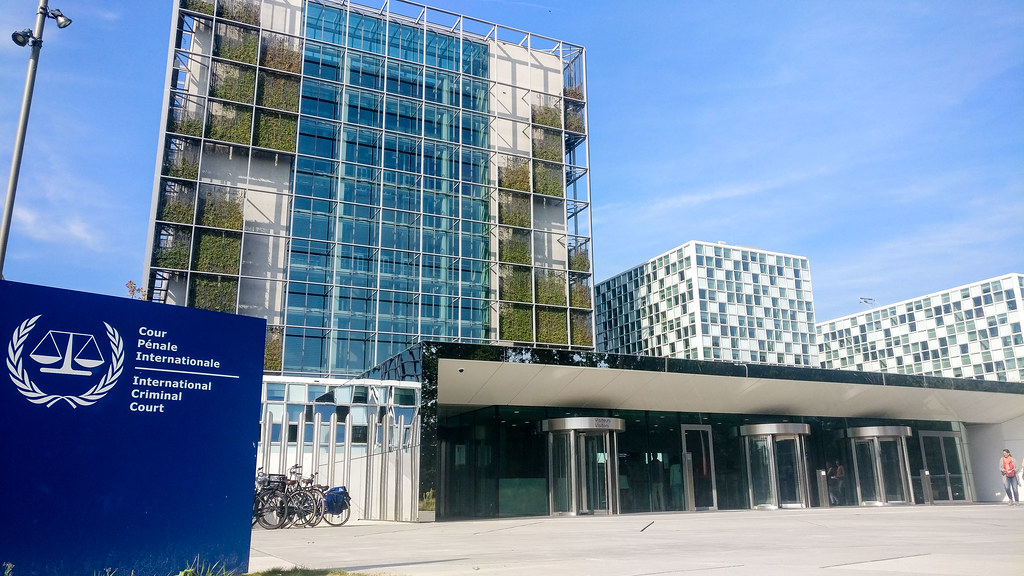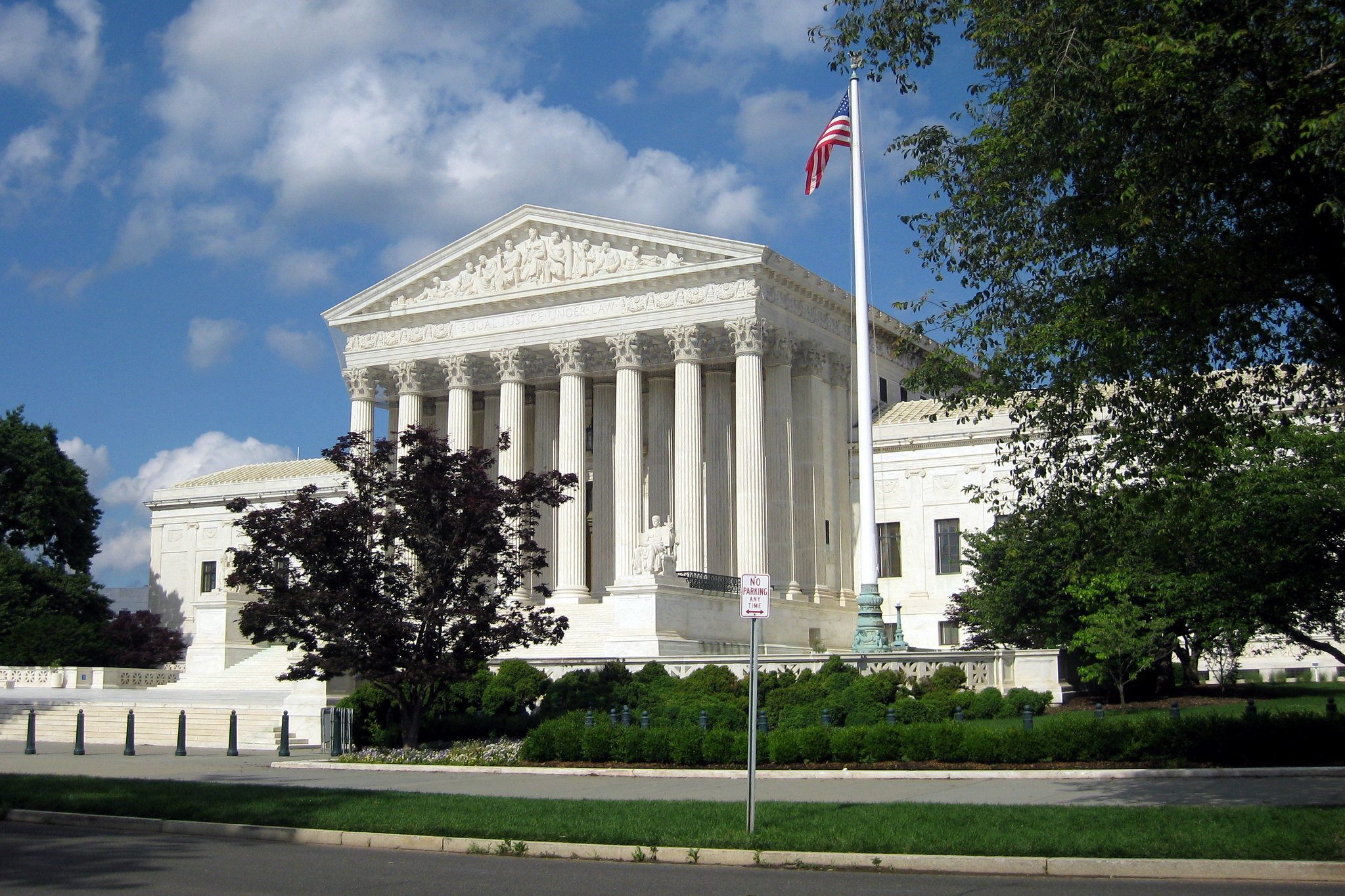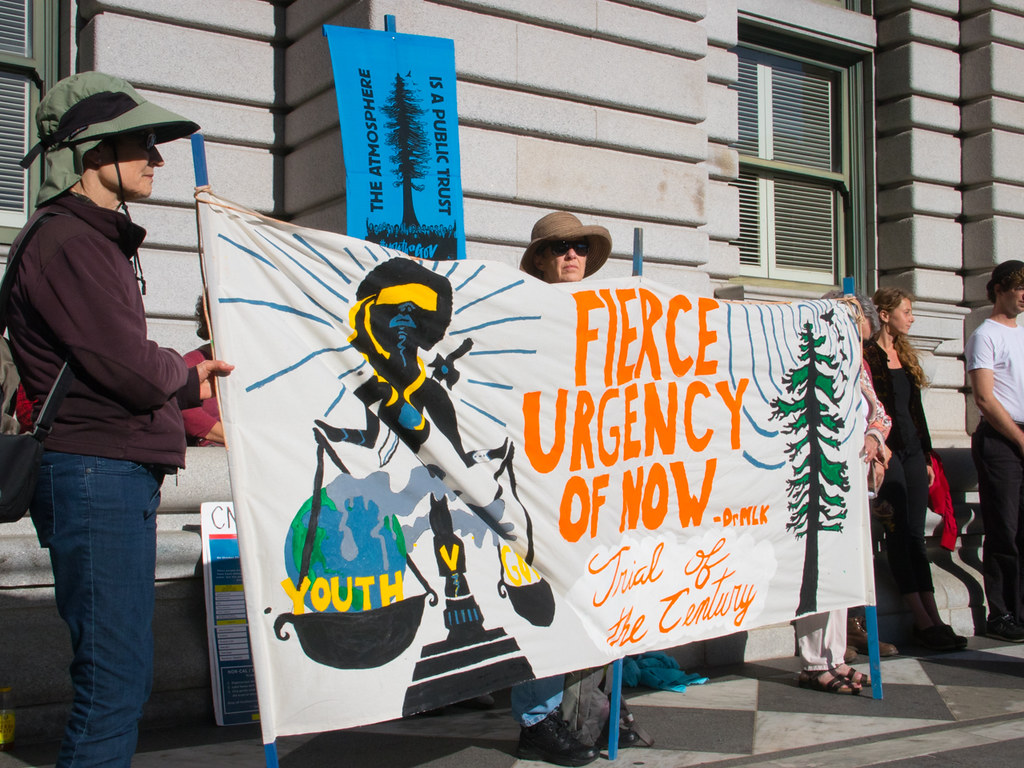ICC Appeals Chamber Authorizes Investigation Into Crimes in Afghanistan
The decision will likely have far-reaching implications for the institutional legitimacy of the court, its relationship with the United States and potential future cases.

Published by The Lawfare Institute
in Cooperation With

On March 5, the Appeals Chamber of the International Criminal Court (ICC) issued a long-awaited decision that authorizes an investigation into war crimes and crimes against humanity in Afghanistan. The decision—which comes nearly a year after the Pre-Trial Chamber stopped the investigation—earned a sharp rebuke from U.S. Secretary of State Mike Pompeo. The Appeals Chamber’s actions are likely to have wide-ranging impact for victims, for the development of international criminal law and for the court’s institutional legitimacy.
The Appeals Chamber had two holdings. First, when the ICC prosecutor initiates an investigation under her own authority, the Pre-Trial Chamber must determine whether there is a reasonable factual basis for the prosecutor to proceed with an investigation and whether potential cases appear to fall within the court’s jurisdiction. However, the Pre-Trial Chamber, the opinion noted, should not review the prosecutor’s determination of whether an investigation would serve the interests of justice. Second, the Pre-Trial Chamber should not restrict the scope of authorized investigation to the incidents specifically mentioned in the prosecutor’s request and incidents that are “closely linked” to those incidents. Judge Ibanez Carranza wrote separately about the relationship between Articles 15 and 53 of the Rome Statute.
Context of the Decision
On April 12, 2019, the Pre-Trial Chamber issued a controversial decision rejecting ICC prosecutor Fatou Bensouda’s request for authorization to investigate war crimes and crimes against humanity allegedly committed on the territory of Afghanistan since May 1, 2003, and other war crimes closely linked to the situation in Afghanistan that were allegedly committed on the territory of other states since July 1, 2002. According to Bensouda, the alleged crimes related to the United States include the war crimes of torture, cruel treatment, and outrages on personal dignity perpetrated by U.S. armed forces and CIA personnel. Specifically, Bensouda argued that she had a reasonable basis to believe that U.S. armed forces committed 54 instances of alleged mistreatment and that 24 additional instances were committed by the CIA. A majority of the alleged abuses occurred in 2003-2004.
Afghanistan has been a party to the ICC since February 2003, giving the ICC jurisdiction over the Rome Statute crimes of war crimes, crimes against humanity, and genocide that occurred on Afghan territory after May 1, 2003, regardless of the nationality of the alleged perpetrator. However, Afghanistan has not ratified the Kampala Amendments, which incorporate the crime of aggression into the Rome Statute, so the court lacks jurisdiction over that crime on Afghan territory. Based on the information Bensouda submitted, the Pre-Trial Chamber determined that she established a reasonable basis to consider that crimes under ICC jurisdiction occurred in Afghanistan and that cases would be admissible before the ICC. However, the chamber noted a long period of time has elapsed between when the crimes occurred and when the investigation would begin, making it difficult to obtain and preserve evidence. In addition, the judges pointed to “subsequent changes within the relevant political landscape both in Afghanistan and in key States (both parties and non-parties to the Statute), coupled with the complexity and volatility of the political climate still surrounding the Afghan scenario” that make it difficult to “gauge the prospects of securing meaningful cooperation from relevant authorities for the future, whether in respect of investigations or of surrender of suspects.” Finally, the chamber pointed to the “significant amount of resources” an investigation would require in light of the ICC’s limited budget.
Overall, although the request for an investigation satisfied the ICC’s jurisdiction and admissibility requirements, “the current circumstances of the situation in Afghanistan are such as to make the prospects for a successful investigation and prosecution extremely limited” and would be unlikely to “result in meeting the objectives listed by the victims favouring the investigation.” Accordingly, the Pre-Trial Chamber concluded that an investigation at that stage would not serve the interests of justice and denied the request under Article 53 of the Rome Statute.
As discussed in our previous Lawfare post and in other articles (by former ICC Prosecutor Luis Moreno Ocampo, Kevin Jon Heller, Dov Jacobs, Katherine Gallagher and Nikki Reisch), the April 2019 Pre-Trial Chamber decision not to authorize the investigation hinged on the notion that the investigation was not in the “interests of justice.” Under the Rome Statute, Article 53(1)(c) requires the prosecutor to consider whether “[t]aking into account the gravity of the crime and the interests of victims, there are nonetheless substantial reasons to believe that an investigation would not serve the interests of justice.” After finding the request met the jurisdiction and admissibility requirements of Article 15(4), the Pre-Trial Chamber determined it had the authority to independently evaluate whether an investigation would serve the interests of justice. The Pre-Trial Chamber explained,
Article 53 of the Statute makes the investigation’s consistency with the interests of justice a statutory legal parameter governing the exercise of prosecutorial discretion; as such, it follows that it also falls within the scope of the scrutiny mandated to the Chamber over that discretion for the purposes of the determination under article 15.
This decision was met with scrutiny, as many observers understood the Pre-Trial Chamber to have expanded the interests of justice test to include ideas about whether the investigation had any prospect of success. The Office of the Prosecutor filed a Request for Leave to Appeal on June 7, 2019. On June 10, a group of victims also filed a Request for Leave to Appeal to the Pre-Trial Chamber and the Appeals Chamber along with a group of six other victims. One individual victim filed a Request for Leave to Appeal on June 12. Finally, the Pre-Trial Chamber authorized an appeal on Sept. 17. The Appeals Chamber heard oral arguments regarding procedural issues and the merits of the appeal in December 2019.
The Appeals Chamber’s Decision
Before the Appeals Chamber, the prosecutor argued that the Pre-Trial Chamber should not have considered whether initiating an investigation is in the interests of justice. Rather, according to the prosecutor, Articles 15(4) and 53(1)(c) of the Rome Statute merely require the Pre-Trial Chamber to determine “whether ... there are no substantial reasons to believe that an investigation would not serve the interests of justice.” The victims, Office of Public Counsel for victims, cross-border victims and Queen’s University Belfast Human Rights Centre similarly argued the Pre-Trial Chamber should review the prosecutor’s assessment of the “interests of justice” only when the prosecutor had based her decision not to investigate on this assessment.
The Appeals Chamber found that the Pre-Trial Chamber erred in interpreting article 15(4)—which directs the Pre-Trial Chamber to assess whether there is a reasonable basis to proceed with an investigation based on the request filed by the prosecutor—as requiring it to assess the “interests of justice” factors laid out in Article 53(1) of the Rome Statute. In reaching this conclusion, the Appeals Chamber first considered the Rome Statute’s drafting history, and contrasted the supervisory procedures required for situation referrals to the procedures required for the prosecutor initiating an investigation of her own accord. While the prosecutor is required to assess the interests of justice when the Security Council or a state party have referred an investigation to her, the Pre-Trial Chamber is not required to do so when the prosecutor applies to open an investigation under her own power.
The Appeals Chamber also considered the discretionary nature of the prosecutor’s power to open an investigation without referral; it has never been a prerogative of the Pre-Trial Chamber to open an investigation where the prosecutor has already declined to initiate after examining a nonreferred situation. Thus, while Article 15 of the Rome Statute governs the prosecutor’s initiation of proprio motu investigations—meaning those of her own accord—Article 53(1) on the prosecutor’s reasonable basis determination of whether to initiate an investigation applies only to state party or Security Council referrals. The text of Article 15 does not reference an “interests of justice” analysis or Article 54. Instead, as reflected in its plain meaning, the Pre-Trial Chamber only needs to determine whether there is a reasonable factual basis and jurisdiction to authorize an investigation. (This determination goes against what the Pre-Trial Chamber found not only in the prior Afghanistan decision but also in the Kenya Authorization Decision.)
Next, the Appeals Chamber supported its interpretation of Article 15(4) by pointing to the “limited and very general” information the prosecutor must include in her request before the Pre-Trial Chamber for authorization of an investigation. The fact that this information is so limited supports the idea that the Pre-Trial Chamber needs only to assess the factual basis for an investigation and to determine whether the court would have jurisdiction over it. If the Pre-Trial Chamber were supposed to apply all of the factors under Article 53(1), it would also need to consider admissibility—and would lack sufficient information from which to do so. The Rome Statute’s drafting history and provisions for other mechanisms to ensure admissibility also support this view.
Finally, the Appeals Chamber dispensed with arguments that Afghanistan, the prosecutor and a group of victims advanced during the hearings about factors to consider in assessing the authorization of the investigation. The Appeals Chamber concluded that the Pre-Trial Chamber erred in deciding that “an investigation into the situation in Afghanistan at this stage would not serve the interests of justice,” finding that the Pre-Trial Chamber’s decision should have addressed only the prosecutor’s factual allegations and assessment of jurisdiction.
The prosecutor also argued that the Pre-Trial Chamber abused its discretion by considering the the interests of justice when determining whether to authorize the investigation into Afghanistan. Since the Appeals Chamber had already found that the Pre-Trial Chamber erred by considering the interests of justice, however, it did not address the second ground of appeal. Instead, given the “extensive submissions” from academics and civil society, the Appeals Chamber provided three observations regarding the Pre-Trial Chamber’s understanding of the “interests of justice[.]” First, Article 53(1) is formulated in the negative—that is, “reasons to believe that an investigation would not serve in the interests of justice” (emphasis added); second, the Pre-Trial Chamber’s reasoning supporting its “interests of justice” analysis “was cursory, speculative and did not refer to information capable of supporting it”; and third, the Pre-Trial Chamber seemingly failed to consider the gravity of the crimes and victims’ interests—as they articulated them—in conducting its assessment.
As the Pre-Trial Chamber had already found a reasonable factual basis to proceed with the investigation and determined that the investigation satisfied all the requirements for the court’s jurisdiction, the Appeals Chamber amended the Pre-Trial Chamber’s prior decision to grant the prosecutor’s request instead of remanding for a new decision.
The Appeals Chamber further decided that the authorized investigation should not be restricted to the facts gathered during the preliminary examination and incidents that are “closely linked.” Limiting the investigation in this way would inhibit the prosecutor from fully seeking the truth. Instead, the Appeals Chamber decided that granting the prosecutor the authorization along the parameters she had requested would satisfy the requirements of Article 15(4). The Appeals Chamber rejected the Pre-Trial Chamber’s suggestion that the prosecutor only be authorized to investigate events that the prosecutor had identified, or those “closely related,” as “unworkable in practice.”
The Appeals Chamber further decided that the Pre-Trial Chamber was incorrect when it determined that alleged incidents the prosecutor attributed to the CIA were outside the court’s jurisdiction. In her request for authorization, the prosecutor indicated that members of the CIA operated a policy in Afghanistan and other state parties that caused serious violations of common Article 3 of the Geneva Conventions. In its prior decision, the Pre-Trial Chamber found those incidents fell outside the court’s jurisdiction because they were “said to have occurred against persons captured elsewhere than Afghanistan” and lacked the necessary nexus to a non-international armed conflict to trigger the obligations of international humanitarian law. By contrast, the Appeals Chamber looked to the purpose of common Article 3 “to provide minimum guarantees in relation to armed conflicts” and the idea of a “spillover” non-international conflict. Through this lens, the place where an alleged victim was captured does not determine whether the conduct took place in the context of, or in association with, an armed conflict. That said, the Appeals Chamber took care to note that it had not analyzed whether any or all of the alleged incidents listed in the request have the armed conflict nexus required to qualify them as war crimes.
Implications of the Decision
The Appeals Chamber’s decision carries a number of implications for the court’s institutional legitimacy that go far beyond Afghanistan. On the one hand, investigating U.S. troops might help to quell criticism that the court tends to target states in the global south while avoiding conflict with nations that have powerful militaries. On the other hand, an investigation into Afghanistan could provoke a more hostile relationship with the United States, a move that Pompeo signaled the day the decision came down.
The ICC’s Institutional Legitimacy
Many observers are likely to view the decision as an important step toward accountability for mass atrocity crimes in Afghanistan. In her statement regarding the decision, Bensouda said:
Today is an important day for the cause of justice in the situation of Afghanistan, for the Court, and for international criminal justice more broadly .... The many victims of atrocious crimes committed in the context of the conflict in Afghanistan deserve to finally have justice. Today, they are one step closer to that coveted outcome.
Countries far from Afghanistan will also watch the decision carefully. In recent years, the ICC has faced criticism that it only investigates states in the global south, particularly those in Africa. Around October 2016, South Africa, Burundi and the Gambia all wrote to the U.N. secretary general signaling their intent to withdraw from the ICC over its perceived bias. While South Africa and the Gambia quickly reversed course, the African Union issued a nonbinding resolution in January 2017 calling on other states to withdraw. The court has opened investigations into situations outside Africa, including in Georgia in January 2016 and Myanmar in November 2019. So far, however, the court has avoided direct confrontation with countries in the global north. That could change with the Appeals Chamber’s decision. The prosecutor’s request for authorization asserts that CIA personnel committed torture and other acts of sexual violence on the territories of Poland, Romania and Lithuania.
For its part, the Trump administration has already shown it is willing to take steps to deter the ICC from investigating U.S. personnel. In April 2019, the United States revoked the ICC prosecutor’s visa over the potential investigation into Afghanistan and indicated it could take further measures, including additional visa restrictions and economic sanctions against ICC personnel involved in the investigation if the inquiry proceeded (discussed further in this Lawfare post by Peter Harrell). The Trump administration could also use a law Congress passed in 2002, the American Servicemembers’ Protection Act—known informally as the “Hague Invasion Act” because it authorizes the use of force to rescue U.S. troops detained at the Hague—to broadly restrict the U.S. from providing funding and assistance to the ICC.
Although Pompeo did not signal a particular policy response during his remarks following the decision, he did call it “a truly breathtaking action by an unaccountable political institution masquerading as a legal body.”
Pompeo went on to reiterate, “[t]he United States is not a party to the ICC, and we will take all necessary measures to protect our citizens from this renegade, unlawful, so-called court. This is yet another reminder of what happens when multilateral bodies lack oversight and responsible leadership and become instead a vehicle for political vendettas. The ICC today stumbled into a sorry affirmation of every denunciation made by its harshest critics over the last three decades.”
As an additional storyline, in December, the Assembly of States Parties to the ICC will elect a new prosecutor to serve a nine-year term. Though Bensouda has shaped much of the Afghanistan investigation to this point, her successor will face the brunt of any backlash as he or she works to ultimately define the contours of the case and evaluate how to proceed.






